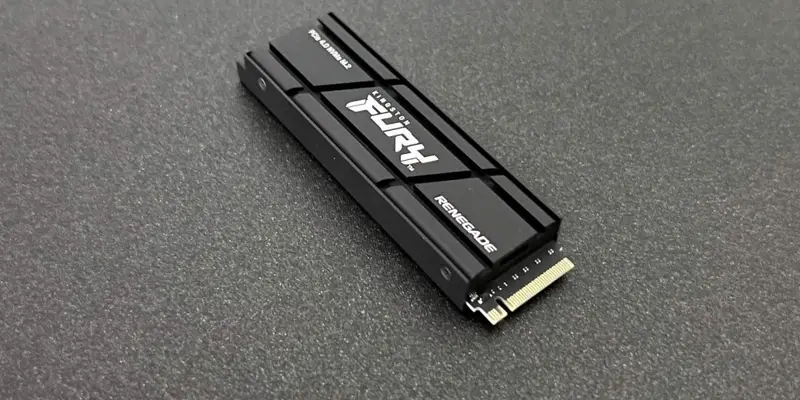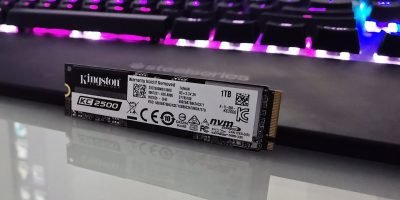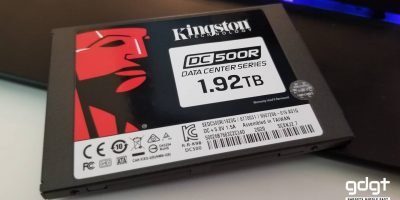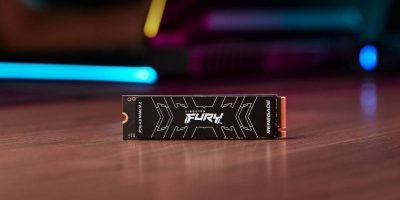The Kingston FURY Renegade PCIe 4.0 NVMe M.2 SSD, Kingston top-of-the-line SSD, is aimed at gamers, enthusiasts and high-power users. It comes in a M.2 2280 form factor with Gen 4×4 NVMe PCIe interface, based on 3D NAND TLC chips and a Phison E18 controller.
There are four different versions available in different storage capacities of 500GB, 1TB, 2TB and 4TB and comes with a low-profile graphene aluminum heat spreader with a weight of only 9.7 grams (2TB-4TB variant).
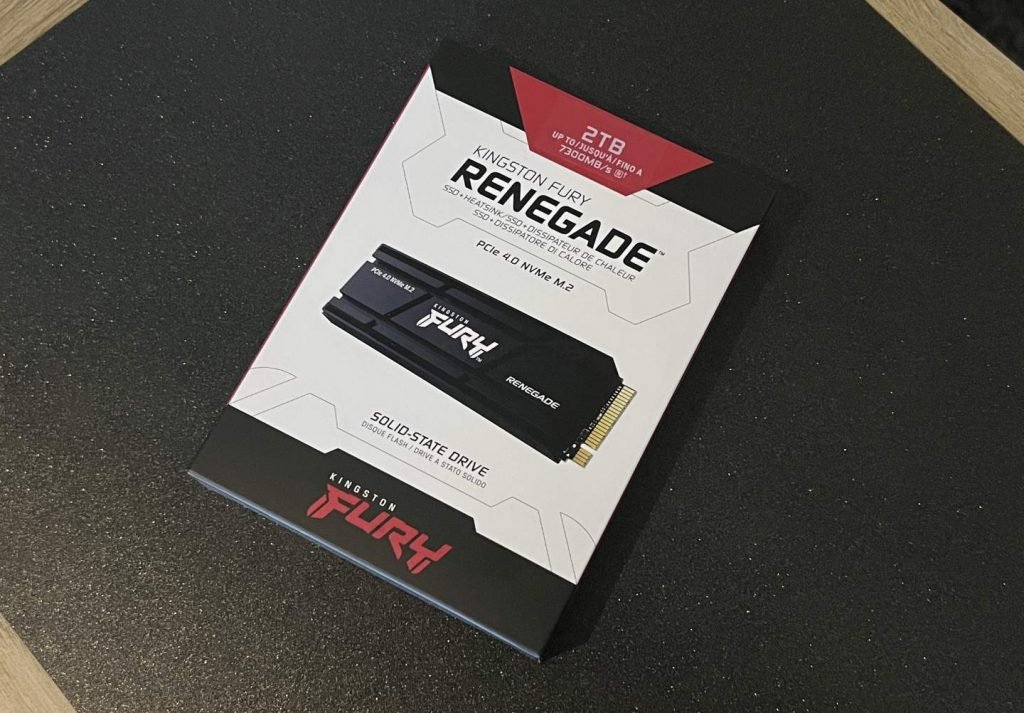
There is also a model that comes with a heatsink. Our review model is the 2TB version with heatsink, meant for better cooling. Kingston claims sequential read speeds that can reach upto 7,300 Mbps and sequential write speeds of 7,000 Mbps on this model.
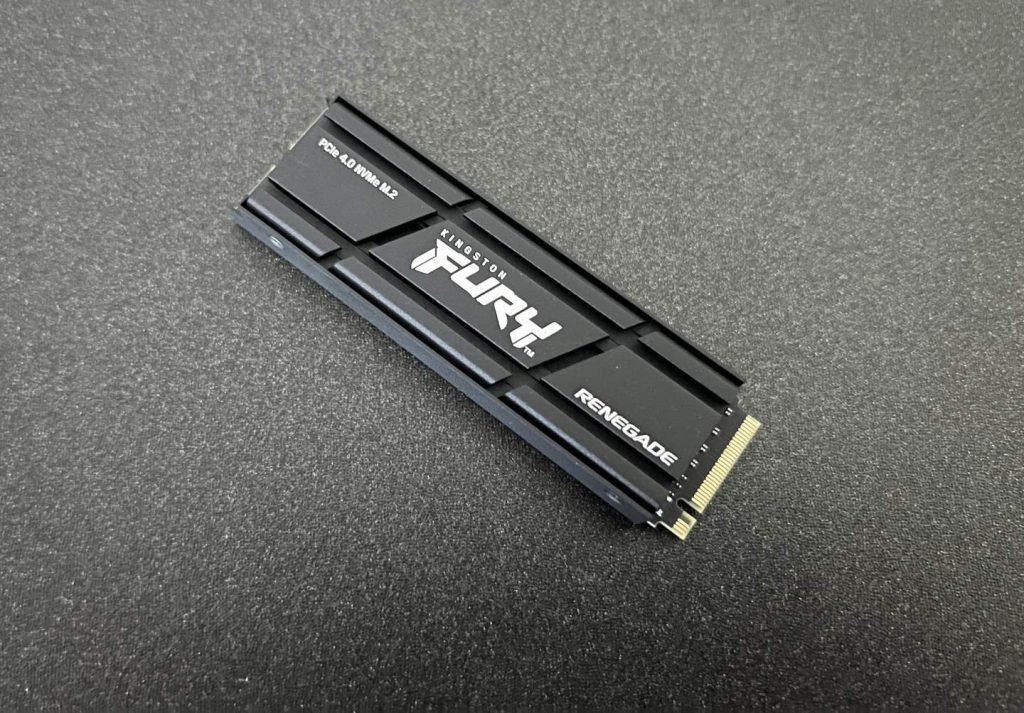
The SSD is rated for an MTTF (Meant time to failure) of 1,800,000 hours, with operating temperatures of 0 to 70 degrees Celsius and is backed by a 5-year warranty.
A big thank you to Kingston for sending us this review unit.
Highlights
- PCIe Gen 4×4 NVMe performance
- Low-profile graphene aluminium heat spreader
- Slim M.2 2280 form factor
- High capacities of up to 4TB
- PS5 ready
Specifications
| Capacity | 500GB, 1TB, 2TB, 4TB |
| Form Factor | M.2 2280 |
| Operating Temperature | 0°C ~ 70°C |
| Controller | Phison E18 |
| Interface | PCIe 4.0 NVMe |
| Sequential read/write | 500GB – 7,300/3,900MB/s 1TB – 7,300/6,000MB/s 2TB – 7,300/7,000MB/s 4TB – 7,300/7,000MB/s |
| Random 4K read | 500GB – up to 450,000/900,000 IOPS 1TB – up to 900,000/1,000,000 IOPS 2TB – up to 1,000,000/1,000,000 IOPS 4TB – up to 1,000,000/1,000,000 IOPS |
| Endurance | 500GB – 500TBW 1TB – 1.0PBW 2TB – 2.0PBW 4TB – 4.0PBW |
| MBTF | 1,800,000 hours |
| Weight | 500GB-1TB – 32.1g 2TB-4TB – 34.9g |
| Dimensions | 80mm x 23.67mm x 10.5mm |
| Warranty | 5 years |
Unboxing
The Kingston Fury Renegade comes in the usual Kingston cardboard packaging with a plastic blister, to keep the drive safe during shipping. The SSD comes in the M.2 2280 form factor, 80mm x 23.67mm x 10.5mm in size and weighs 34.9 grams (2TB-4TB variant). The SSD larger and heavier than the standard Renegade SSD due to the added heatsink and you may find it harder to install on gaming laptops and smaller PC’s but fits great on standard gaming PC’s and the Playstation 5.
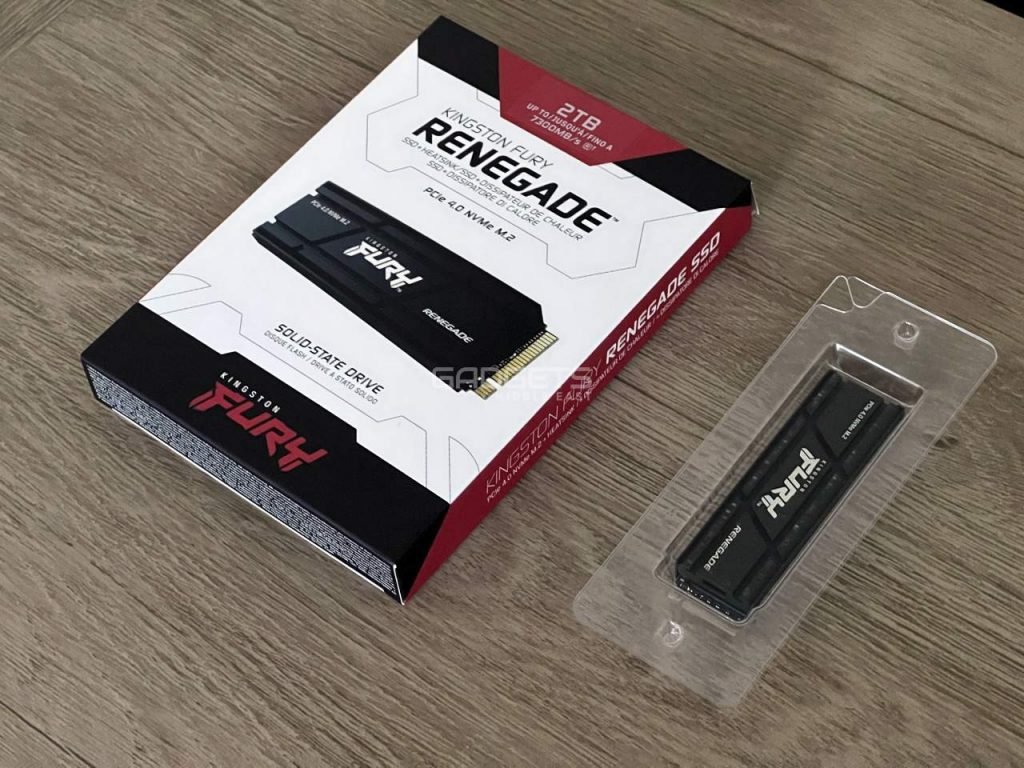
The package also includes a serial to Acronis True Image HD software for backups, archiving and recovery.
The Kingston Fury Renegade comes in the M.2 format and connects over a PCI-Express 4 x4 interface. This format is approximately twice as faster than PCIe 3.0, the Kingston Fury Renegade PCIe 4.0 NVMe M.2 2TB SSD is capable of both high speed read and transfer rates, as well as faster access times.
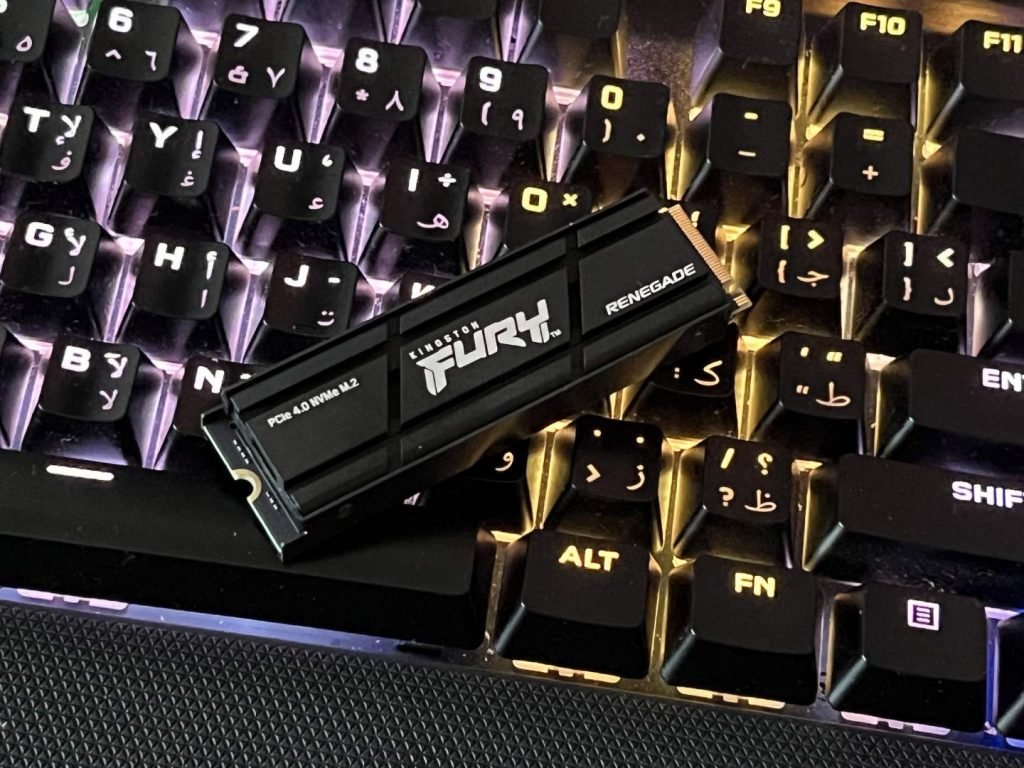
Performance
For the performance tests we have used the following hardware. On paper, performance should be 7,300MB/s in sequential reading and 7,000MB MB/s in writing, along with 1,000,000 IOPS.
The Kingston Fury Renegade is also backward compatible with PCIe Gen 3 but will only operate at Gen 3 speeds.
Test Bench
- Intel Core i9-12900K
- Asus ROG Maximus Z690 HERO
- NVIDIA RTX 3070 GPU
- Kingston Fury Beast DDR5-6000 32GB RAM
- Kingston Fury Renegade 2TB SSD
After formatting the drive, we are left with 1.86TB of free space. During tests, the Kingston Fury Renegade performed extremely well. Transferring and reading files, booting the system and loading games is amazingly quick with this SSD.
In our Final Fantasy XIV: Endwalker test, a benchmark that simulates game load time, the Kingston Fury Renegade SSD came out with an impressive load time of 7.5 seconds.
When copying files during everyday use, the speeds are in the range of 1,300-1,900 MB/s, depending on the size of files. In CrystalDiskMark, the Fury Renegade comes out with 6,962MB/s and 6,870 MB/s in sequential reading and writing. In ATTO Disk we see rates above 6,885 MB/s in reading and 6,455 MB/s in writing.
| CrystalDiskmark Read | 6,962 MB/s |
| CrystalDiskmark Write | 6,870 MB/s |
| ATTODisk Read | 6,885 MB/s |
| ATTODisk Write | 6,455MB/s |
The Kingston Fury Renegade maintained stable temperatures between 40-45 degrees during work tasks. And while gaming and on load it went up to a maximum of 65 degrees.
Software
The Kingston SSD Manager can be downloaded from Kingston’s website, which can help with monitoring temperature, drive health, status, and disk usage and also update firmware as and when they are released. The utility also allows to tune the drive depending on the workload.
Conclusion
The Kingston Fury Renegade is the fastest PCIe Gen 4.0 NVMe M.2 SSD drives we’ve tested and is optimised to reduce game and application load times, stream and capture with ease and give your system an overall boost in responsiveness. However, the high-capacity variants can get super expensive.
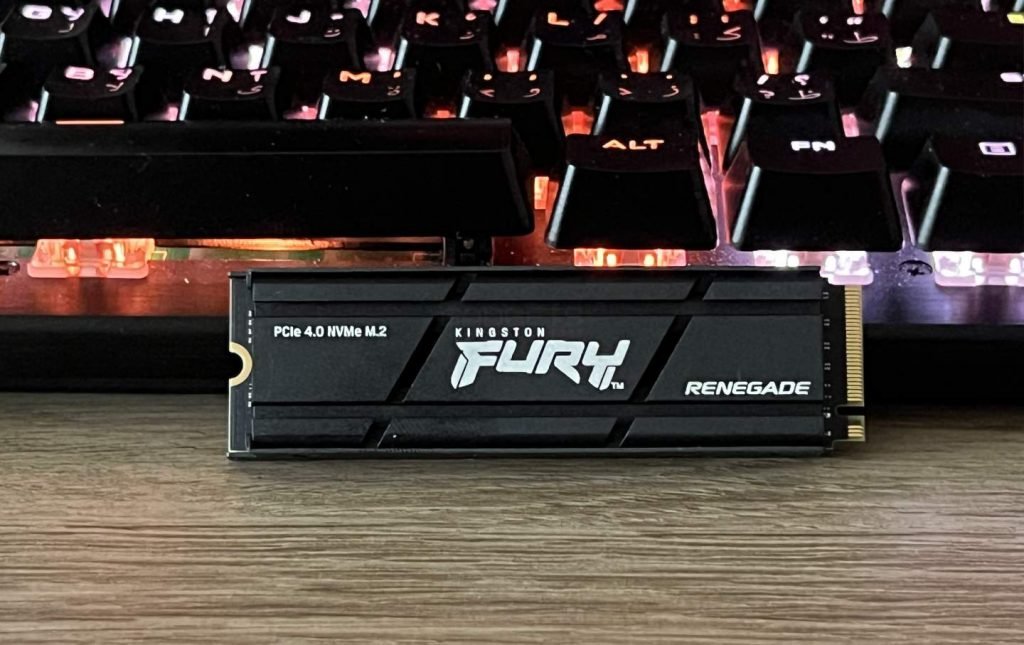
The new FURY Renegade SSD is currently available in 500GB, 1TB, 2TB and 4TB capacities and is backed by a limited five-year warranty.

